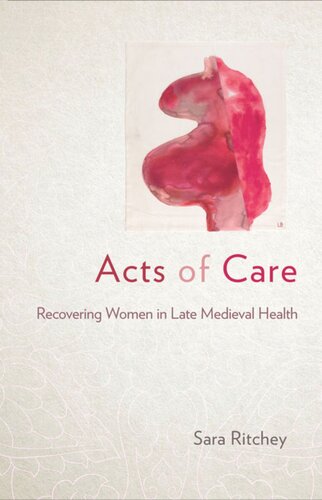

Most ebook files are in PDF format, so you can easily read them using various software such as Foxit Reader or directly on the Google Chrome browser.
Some ebook files are released by publishers in other formats such as .awz, .mobi, .epub, .fb2, etc. You may need to install specific software to read these formats on mobile/PC, such as Calibre.
Please read the tutorial at this link: https://ebookbell.com/faq
We offer FREE conversion to the popular formats you request; however, this may take some time. Therefore, right after payment, please email us, and we will try to provide the service as quickly as possible.
For some exceptional file formats or broken links (if any), please refrain from opening any disputes. Instead, email us first, and we will try to assist within a maximum of 6 hours.
EbookBell Team

4.4
102 reviewsIn Acts of Care, Sara Ritchey recovers women's health care work by identifying previously overlooked tools of care: healing prayers, birthing indulgences, medical blessings, liturgical images, and penitential practices. Ritchey demonstrates that women in premodern Europe were both deeply engaged with and highly knowledgeable about health, the body, and therapeutic practices, but their critical role in medieval health care has been obscured because scholars have erroneously regarded the evidence of their activities as religious rather than medical.
The sources for identifying the scope of medieval women's health knowledge and healthcare practice, Ritchey argues, are not found in academic medical treatises. Rather, she follows fragile traces detectable in liturgy, miracles, poetry, hagiographic narratives, meditations, sacred objects, and the daily behaviors that constituted the world as well as in testaments and land transactions from hospitals and leprosaria established and staffed by beguines and Cistercian nuns.
Through its surprising use of alternate sources, Acts of Care reconstructs the vital caregiving practices of religious women in the southern Low Countries, reconnecting women's therapeutic authority into the everyday world of late medieval healthcare.